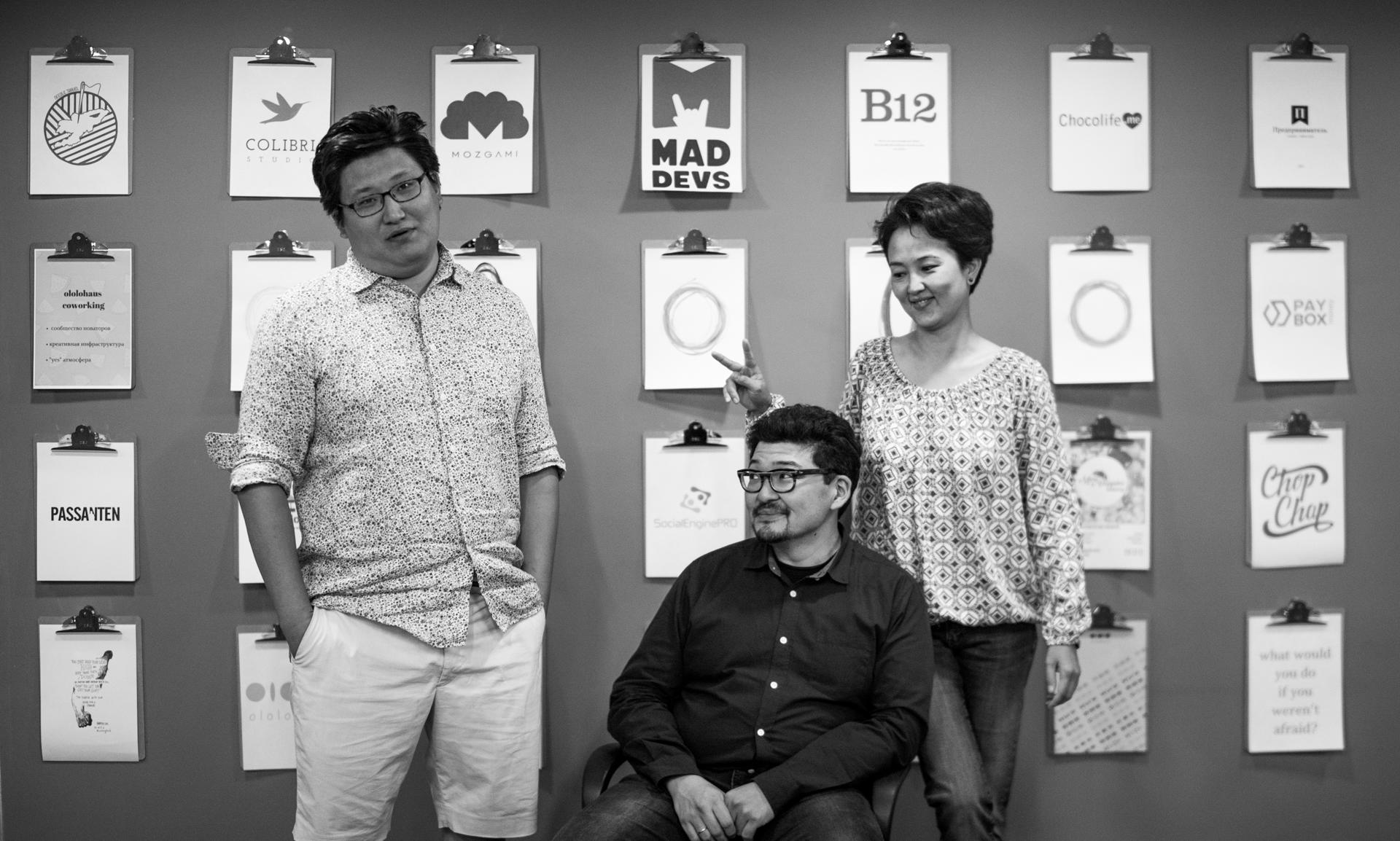Ainura Amanalieva, Atai Sadybakasov and Daniyar Amanaliev are the founders of ololo, a unique group of companies that is changing the cultural, business and creative landscape not only in their native Kyrgyz Republic, but throughout all of Central Asia. ÅDÅMÅDÅR / CA traveled to the capital of Kyrgyzstan to talk with these three Bishkek residents who have created something beautiful, large-scale and unprecedented for the whole region.
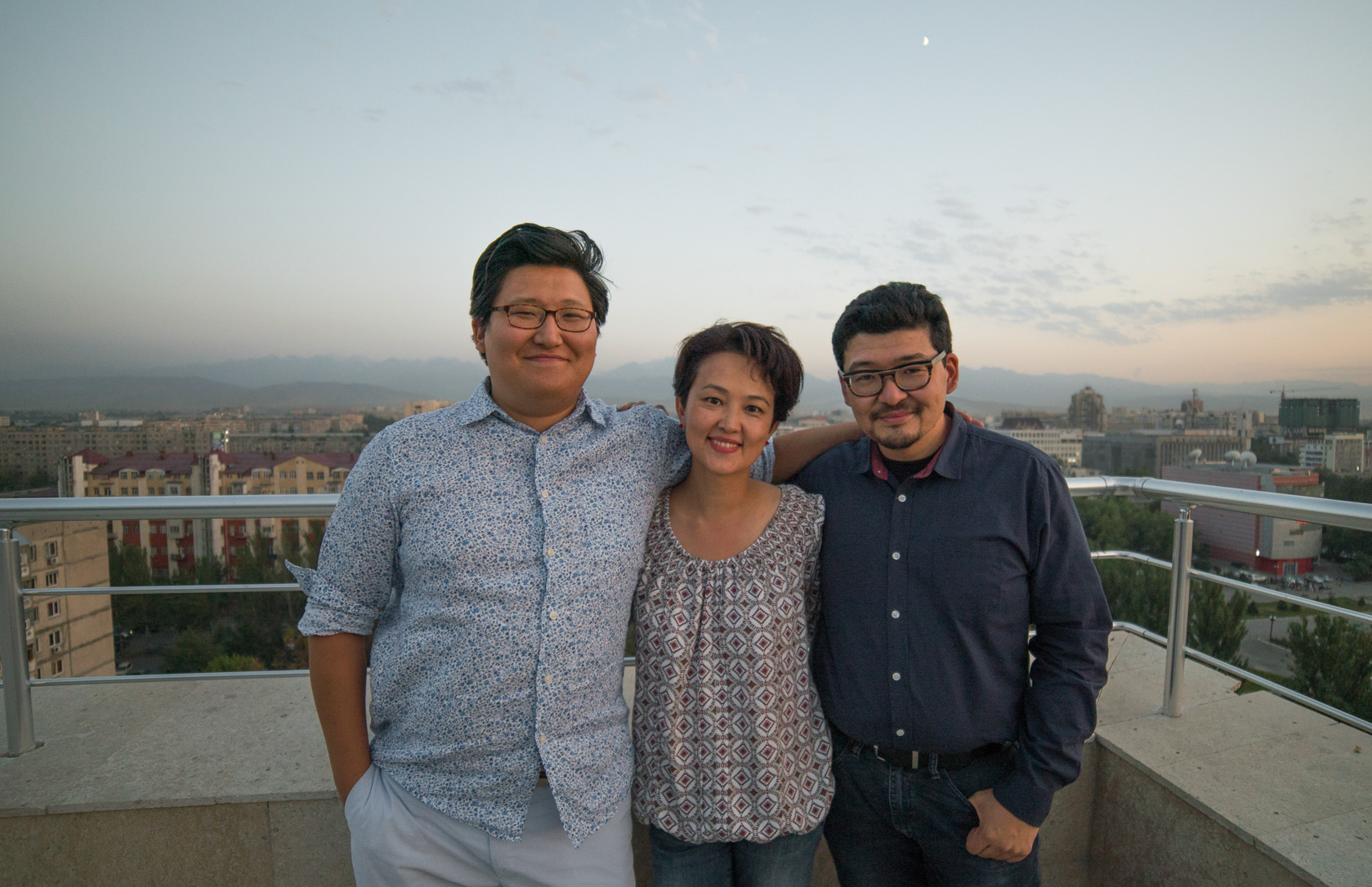
IDEA
Ainura Amanalieva, co-founder:
“It all started when Daniyar decided to leave the company which he had headed for more than 10 years, one of the largest tourist agencies in Central Asia. It had a large number of employees and strict, disciplined corporate culture. He didn’t know what his future would hold after he left, so he took a monthlong “time out”.
First, he went to see his sister in France. Perhaps this was the moment that started it all, because for the first time in a long time, he was doing something for himself. He spent time with children. He went on walks, simply observing what was going on around him, not thinking about business strategies, plans and daily tasks. Upon his return, Daniyar decided to devote time to his personal development and to learn something he had never before tried: piano. His teacher was Vika Yurtaeva, a person who dreamed of building a school where children would be taught to truly love music. After all, we all know and remember Soviet teaching methodology, where many concepts were taught through screaming, violence and pressure. For some reason no one thought that things could be done differently. But Daniyar contemplated this idea and he believed that they could. This was the first step to ololo.
We are supporters of the “lean startup” idea; thus, we started developing our idea with few resources. It all started as an experiment: it would either survive, or it wouldn’t. We started adult courses, to which our friends responded, “Have you gone mad? Who can build a business on music lessons?!” In response to these doubts, in February 2016, we officially registered the company..."
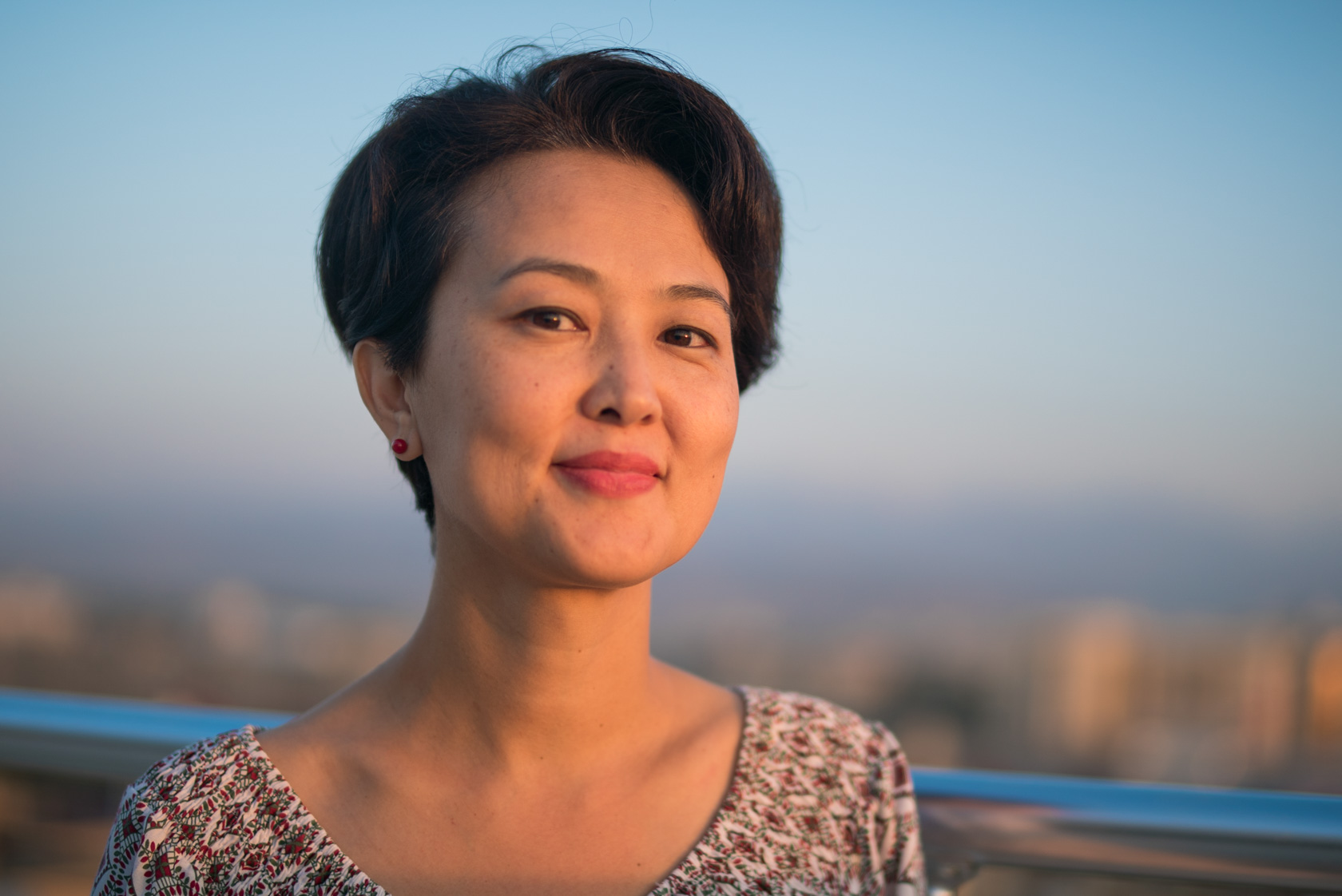
At the moment, ololo is a group of companies with more than 50 employees. In addition to two art studios, the team manages a network of five coworking spaces in Bishkek and Osh, a large business center, and a startup incubator. In the near future ololo will begin implementation of a major project in Issyk-Kul. In addition, the company is working on increasing the scope of its events - more than 500 of them took place last year alone, with more than 15,000 guests in attendance.
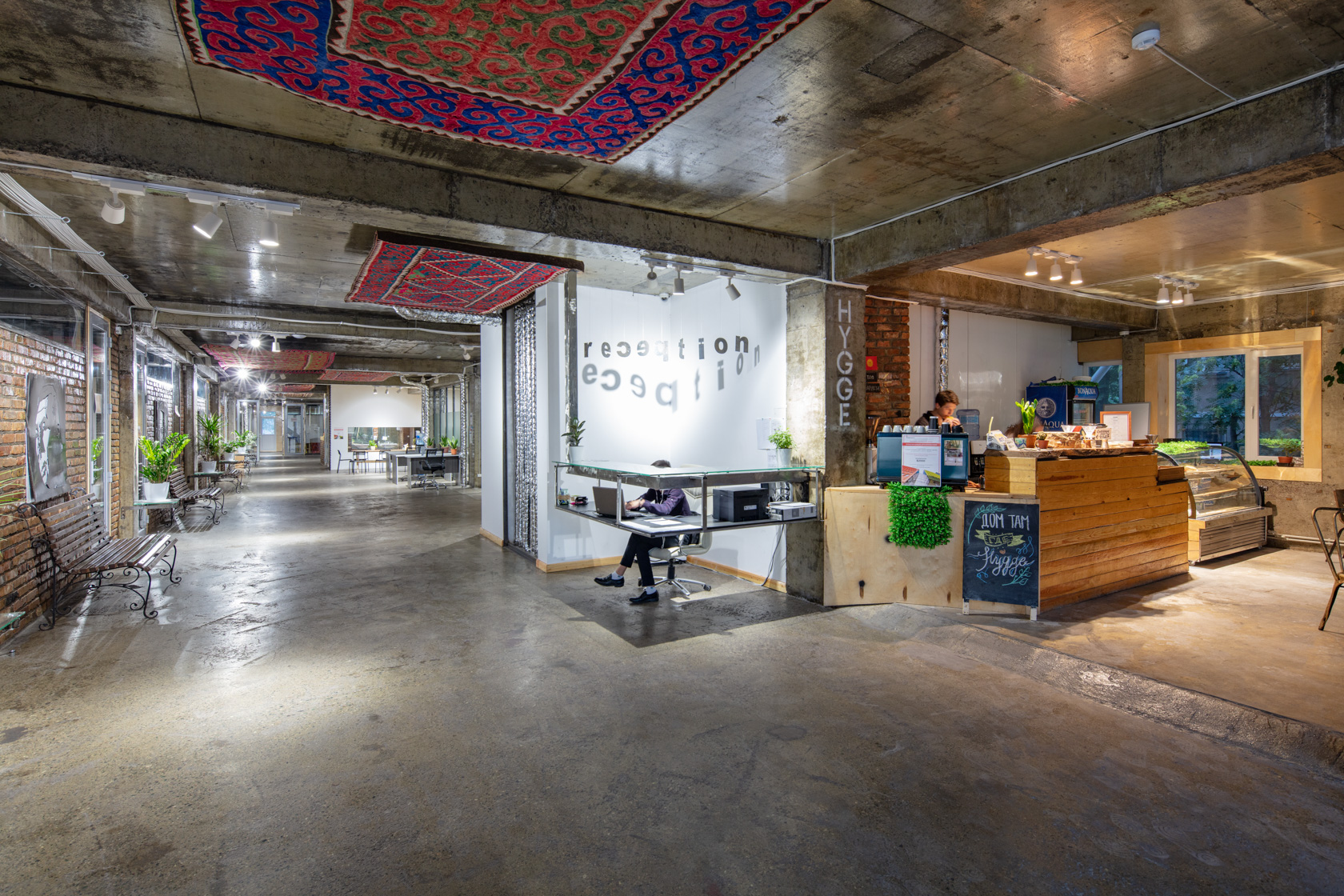
ololo
Atai Sadybakasov, co-founder:
“The most common question we get is: why the name “ololo”? We have a friend named Asan Botbaev. He a creative person who thinks outside the box. He loves to come up with silly names that somehow come to life. For example, "Yenot", "Moloko" or “Kuragami”.
We thought about the name of our brand. During one brainstorming session, we were coming up with ideas like "Crescendo", "Gamma", "Maestro", "Aria", and stuff like that. And Asan says: “What about ololo?”. Everyone laughed, but two days later we felt how simple, universal and easy it was. Only the Japanese say it like ororo.”
Daniyar Amanaliev, co-founder:
“Asan came up with the name, but we came up with its meaning. The idea is this: ‘ololo’ itself has no meaning, but all of its associations are positive. If you ask a person, does this sound funny or sad? positive or negative? sharp or round? and so on – their choice will always lean in the direction of positive emotions.
It’s like art. As a rational person, looking at a painting, I always wondered: what is the artist trying to say? What is the point? Once, someone explained to me that if it touches me and affects my emotions, then that in itself is the point, and that thing is art. It does not have to affect you positively; it just has to touch the strings of your soul. ololo is exactly the same thing. Everyone asks the question: what is ‘ololo’? They quickly remember our name, and quickly tell it to their acquaintances. ololo is a viral, adhesive thing, and it evokes emotions.
Then Atai came up with the logo: he literally drew it on the phone with his finger. Our friend Dauren Tuleyev, an expert in marketing in Almaty, informed us that circles are trendy shapes and recommended that we use them in the logo. We took Atai’s version as the base and slightly modified it. The logo is very informal, it can be written in different ways, but the idea behind it remains the same: it’s five circles, two of which are elongated and rotated onto their sides.”
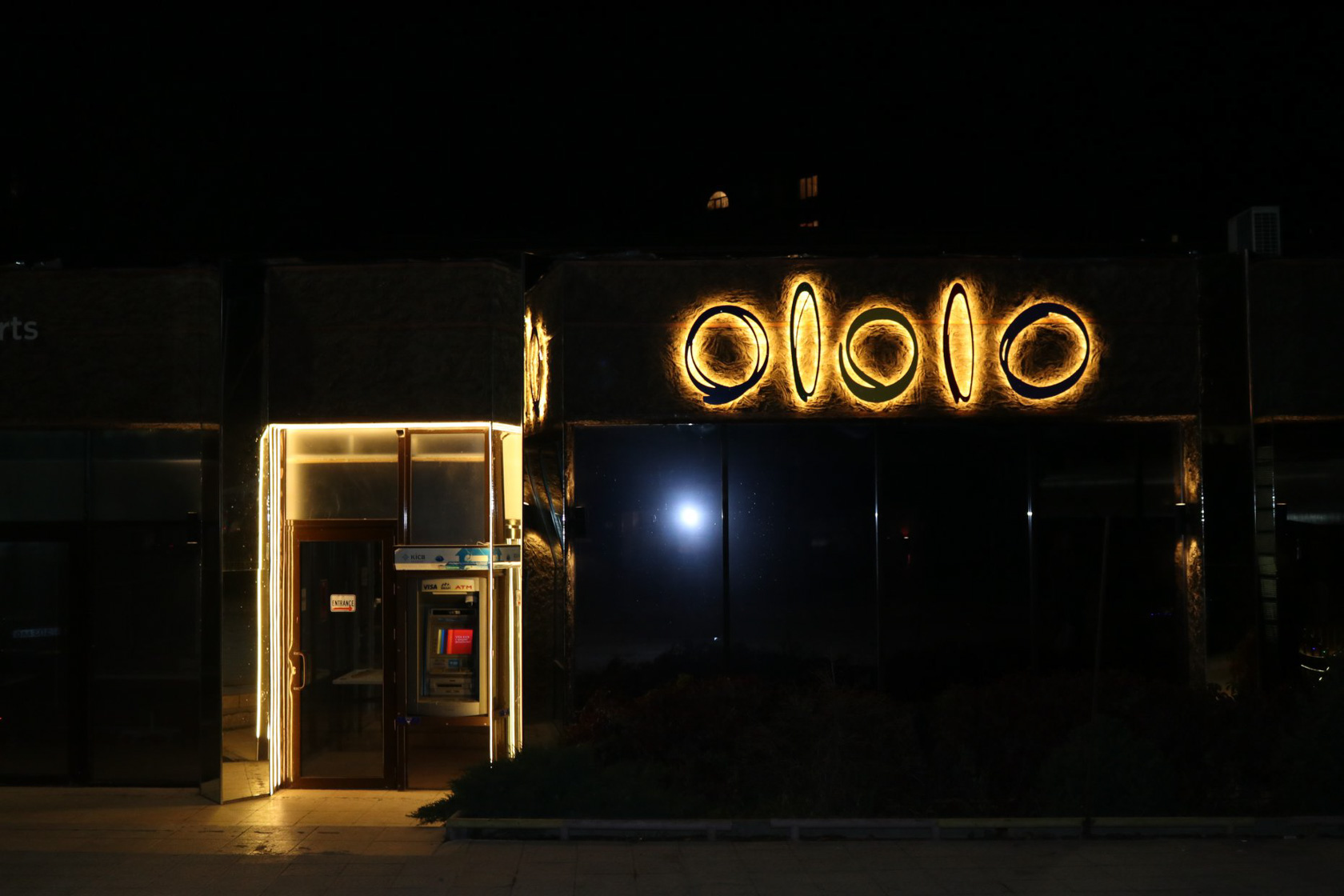
MISSION
Daniyat:
“We wanted to create a playful company with a very serious core idea that would break down dangerous stereotypes.
For example, it was very important for me to create a special, very liberal, but at the same time effective corporate culture. In Kyrgyzstan, we are not very interested in corporate culture; we do not understand its significance. Only a dictatorial vision of corporate culture is truly accepted; everything else is perceived as anarchy.
Less fear, more love
When we were asked what our mission was, we came up with a simple formula: that there would be less fear and more love. The problem of our society – and, it seems to me, this applies to all post-Soviet countries – is that fear permeates everything. People are afraid to do what they want. They are afraid to be themselves, to look deep within themselves and, thereby, to find their life’s path.
We are simply trying to encourage people to do what they love: to revel in the things that make them happy, to seek, to try, to be unafraid. We have many amazing examples where a fifty-year-old comes to us to learn to sing, and afterwards they even perform at our concerts. Stories like these inspire us very much.”
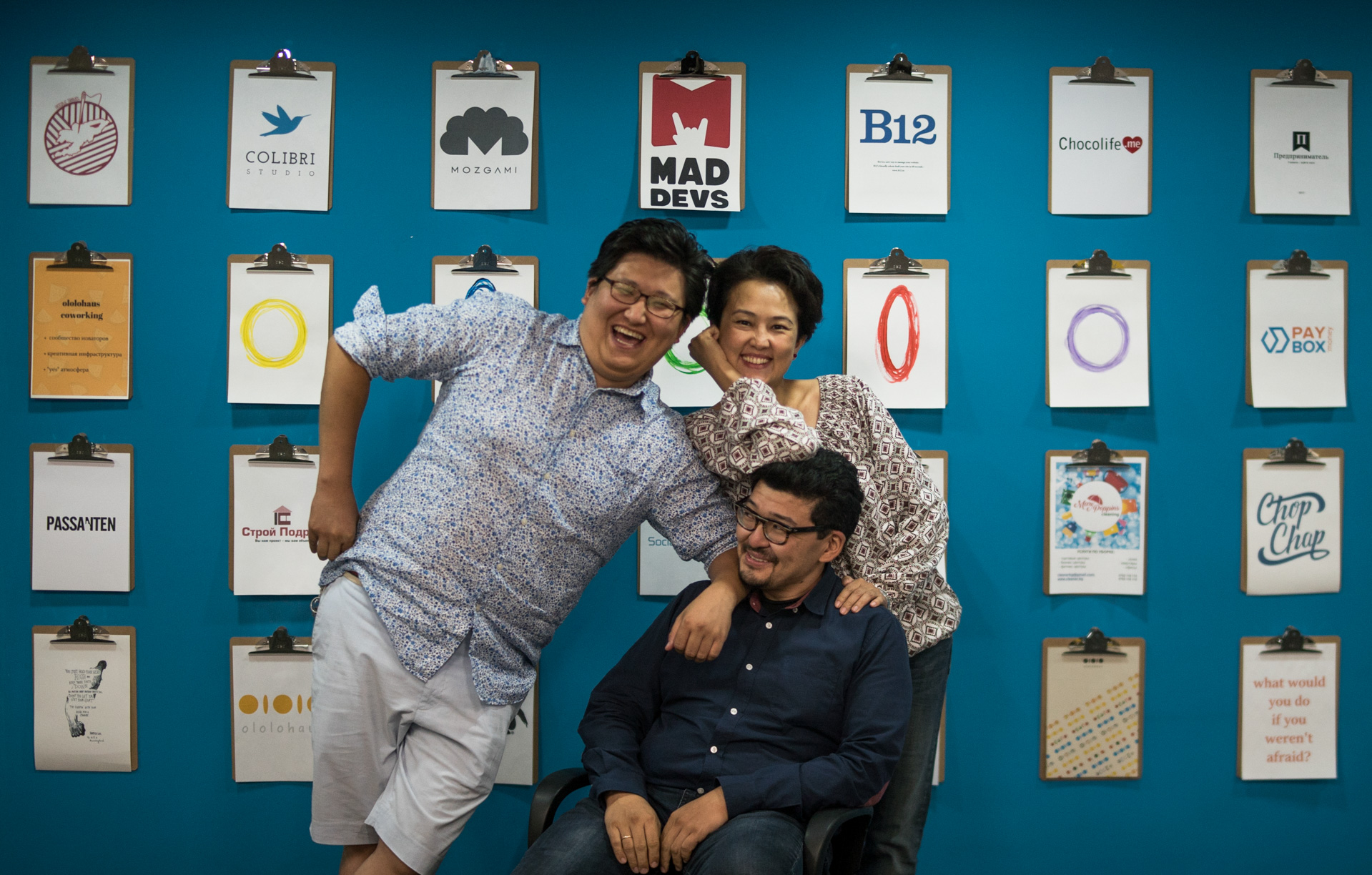
COMMUNITY
Daniyar:
“Our first studio is located in a historic place – directly above an arch in an old house on Erkindik Avenue. It is very beautiful and inspiring. The film “The Red Apple,” based on the story of Chingiz Aitmatov, was shot there.
This whole ololo project started with 10 thousand som (~$145). The idea was to create the number one academy of arts in Central Asia with a minimal budget. We would thus set an example: if you want to do something, don’t wait until you’ve accumulated 20-30,000 dollars. Just go and do it. No matter how big your idea, you can start, even with minimal resources.
We did not have a detailed business plan or financial planning. We just decided to be frugal, purchasing solely the things without which it’s impossible to live and setting very simple goals for ourselves. Our initial goal was 30 clients by the end of the first month. By the end of March, we already had 66. The space was full. There were times when classes were going on in all rooms at the same time, and we had to conduct our business and make our phone calls to our clients sitting outside on the stairs outside the entrance to our studio.
We thought about acquiring extra space, and we were offered an old daycare. There we came up with the idea of building a coworking space: the building was too big for a studio, and we wanted to bring together interesting people and projects under one roof.
We created a community where everyone liked each other
On the ground floor, we had a science museum for children, an hourly daycare and our studio. On the second floor, we began to hold events and launched our coworking space. We consciously filtered customers. If people came to us from traditional businesses, we quoted a price so high that they could not accept it. This created a community with a unique atmosphere where everyone liked each other.
Eventually, we were forced to urgently look for a new place and so picked a business center. We were literally told by the owners: "We have a respectable business center, and your IT specialists, programmers and designers will be walking around here in shorts?" We explained that the world is changing, that these people in shorts are now the main clients all over the world. They are the most promising and will be the most successful.
After our explanation, the owners became interested in our vision and we came to an agreement in which we took control of the entire building. Thus, in addition to our studio and coworking space, we found ourselves expanding into the role of property managers. In this space, we created high-quality infrastructure and brought together a very interesting mix of people. Because of this, this business center is now the best in Bishkek in terms of price-quality ratio and work atmosphere. What we have implemented complies with normal international standards, but in Bishkek everyone is building business centers on the principle of "renting out every square centimeter." As it turns out, our approach in Bishkek is more effective: now “Victory” is the only business center in Bishkek with an average annual occupancy of over 95%.
We are always open to opportunities, and we do not give up when faced with difficulties, because we believe instructive solutions and decisions are born from them. In this way, we became acquainted with people who entrusted us with the management of the space in the basement and first floor of a residential building. There, we opened our second coworking space – ololoManas. It is located on Manas Avenue. This is our quietest and coziest space of all.
After this, we opened ololoErkindik on the ground floor of another residential building. This became a favorite place for both our team and our guests, probably because we ourselves were engaged in its planning and construction, under the strict guidance and command of Atai. Here, his talents as an architect and designer were able to fully shine. The reception, national shyrdaks hanging from the ceilings that appear to float, creating the illusion of flying carpets while simultaneously absorbing sound. This is interspersed with a “loft” style. This space, in fact, has become a reflection of who we want to be and what kind of atmosphere we want in the spaces that we occupy.
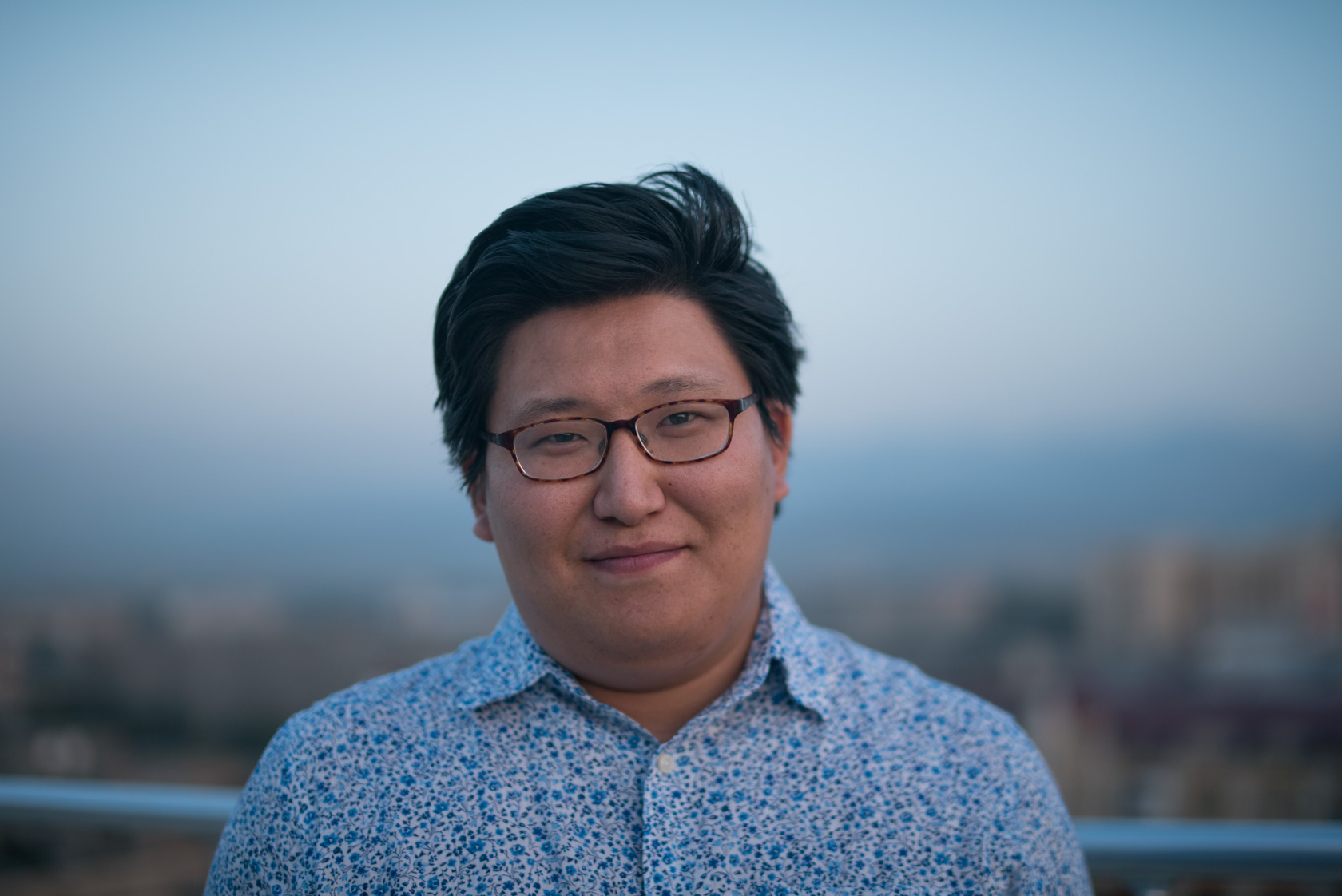
Following the opening of ololoErkindik, we discussed and developed many ideas, ranging from the cancellation of the art studio to the opening of a new 13,000 square meter space. We were invited to work with properties throughout the city. We were shown an old factory in St. Petersburg, and negotiations were held on the opening of an ololo space in Dushanbe. Now we are preparing to take control of one of the largest holiday resorts on Lake Issyk-Kul. There we will test our idea for an all-weather space for work, sports, rehabilitation, recreation and accommodation. At each stage, we held many meetings and negotiations, many of which took several months. But there was not a single day that our team gave up or refused to continue to believe in our ambitious ideas.
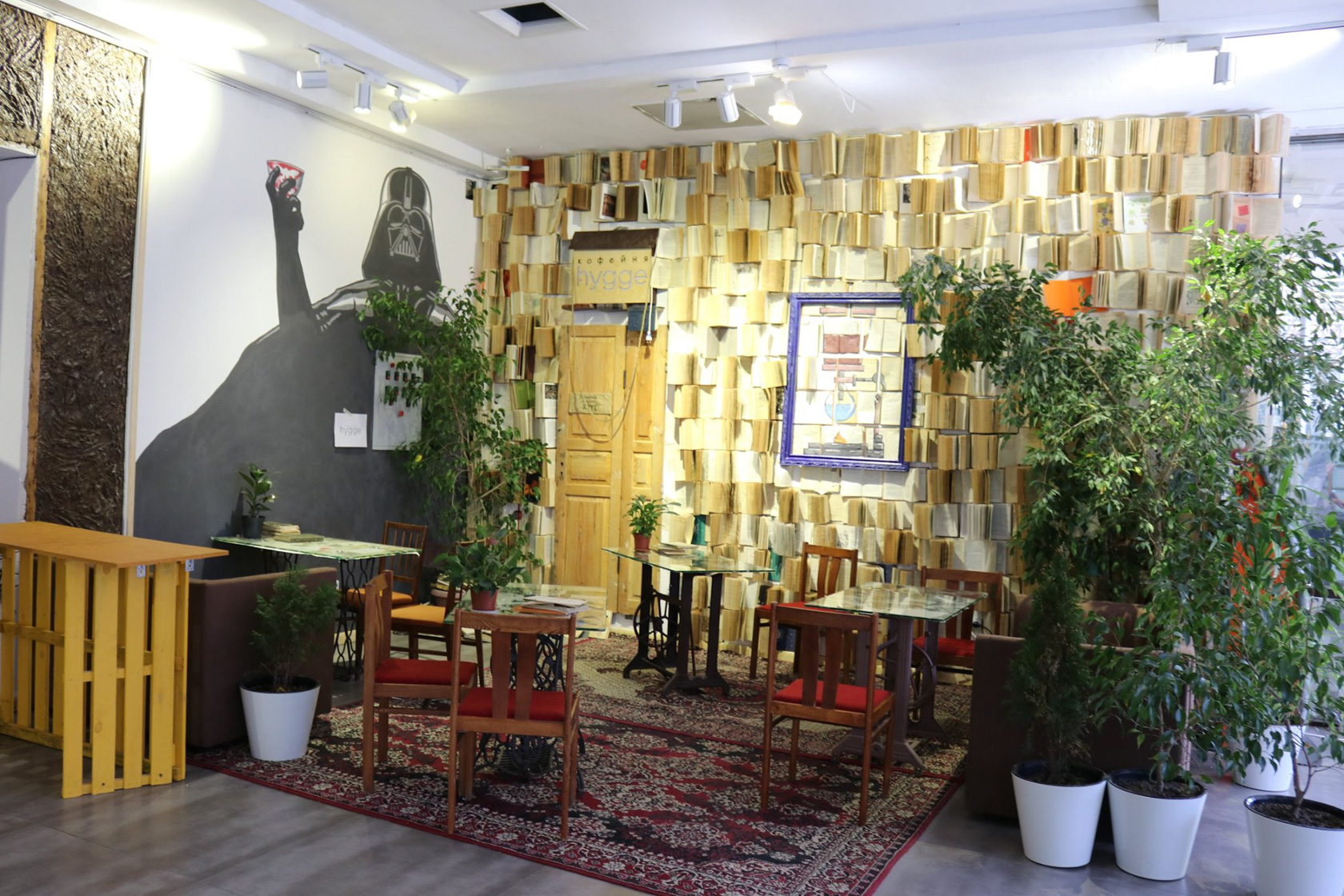
Out of all our ideas and negotiations, no more than 10% are implemented. In 90% of cases, we fail, turn the page, and continue reading further. It’s pretty simple: in order to maintain such a high speed of development, we have to make many attempts, and each failure teaches us something.
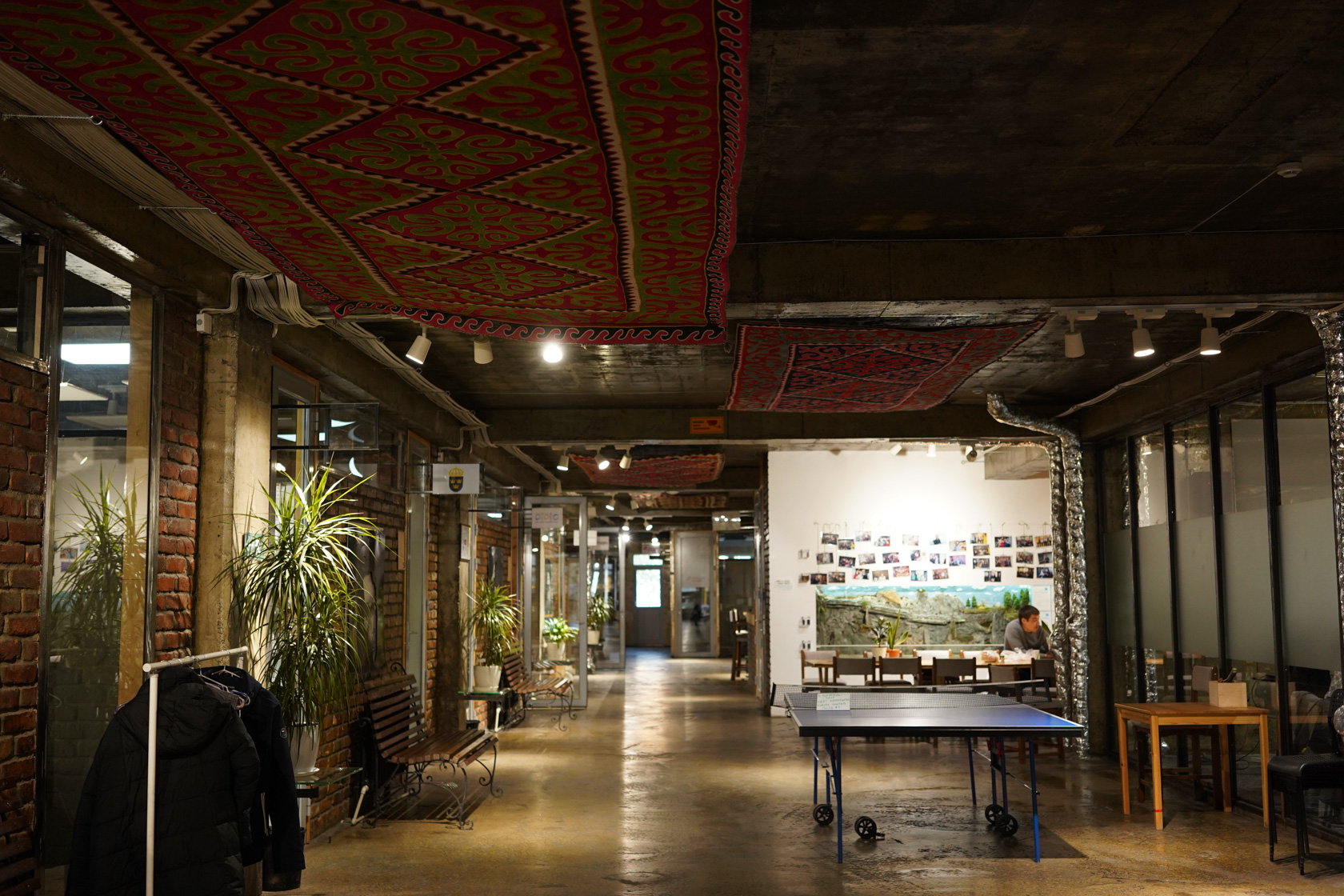
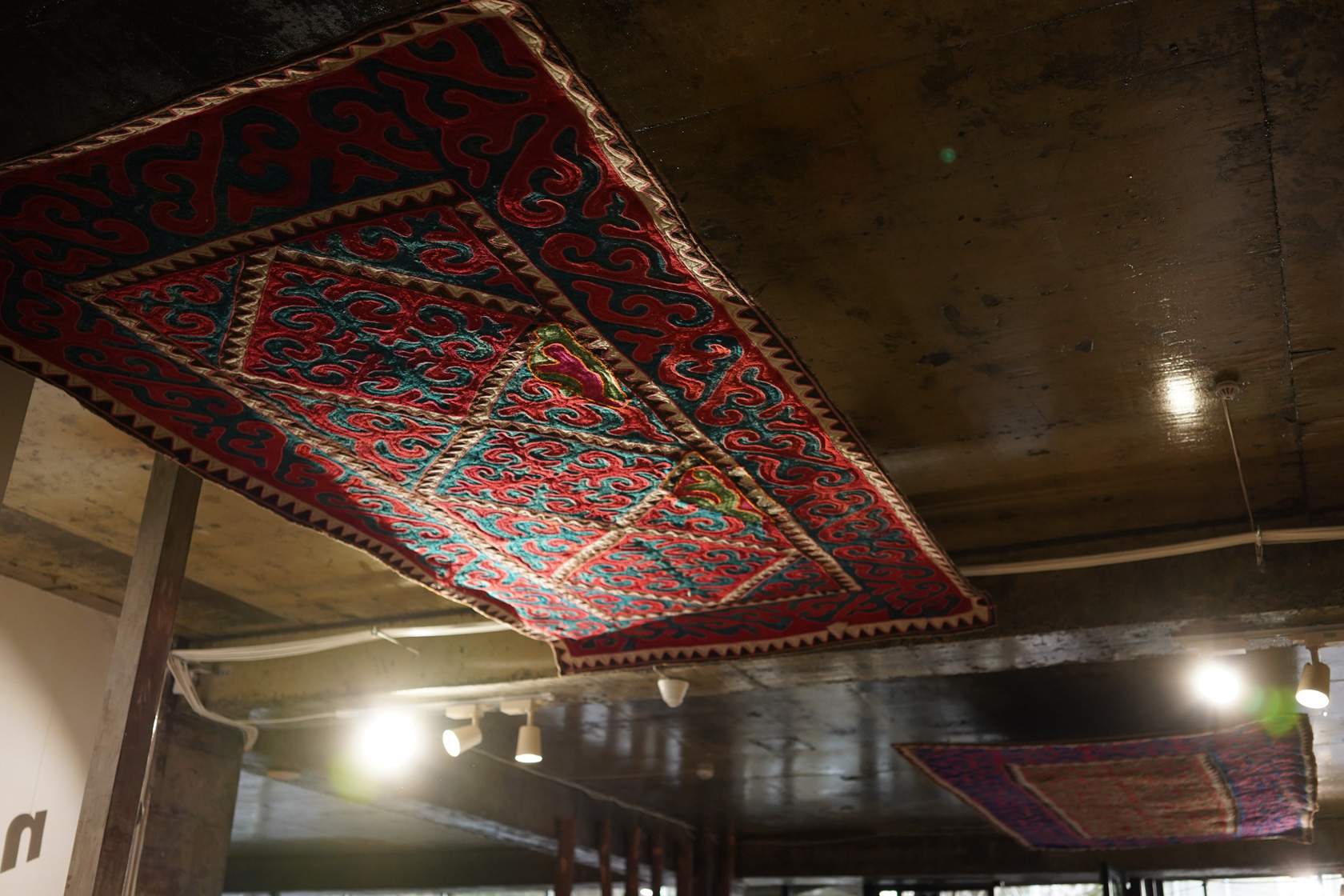
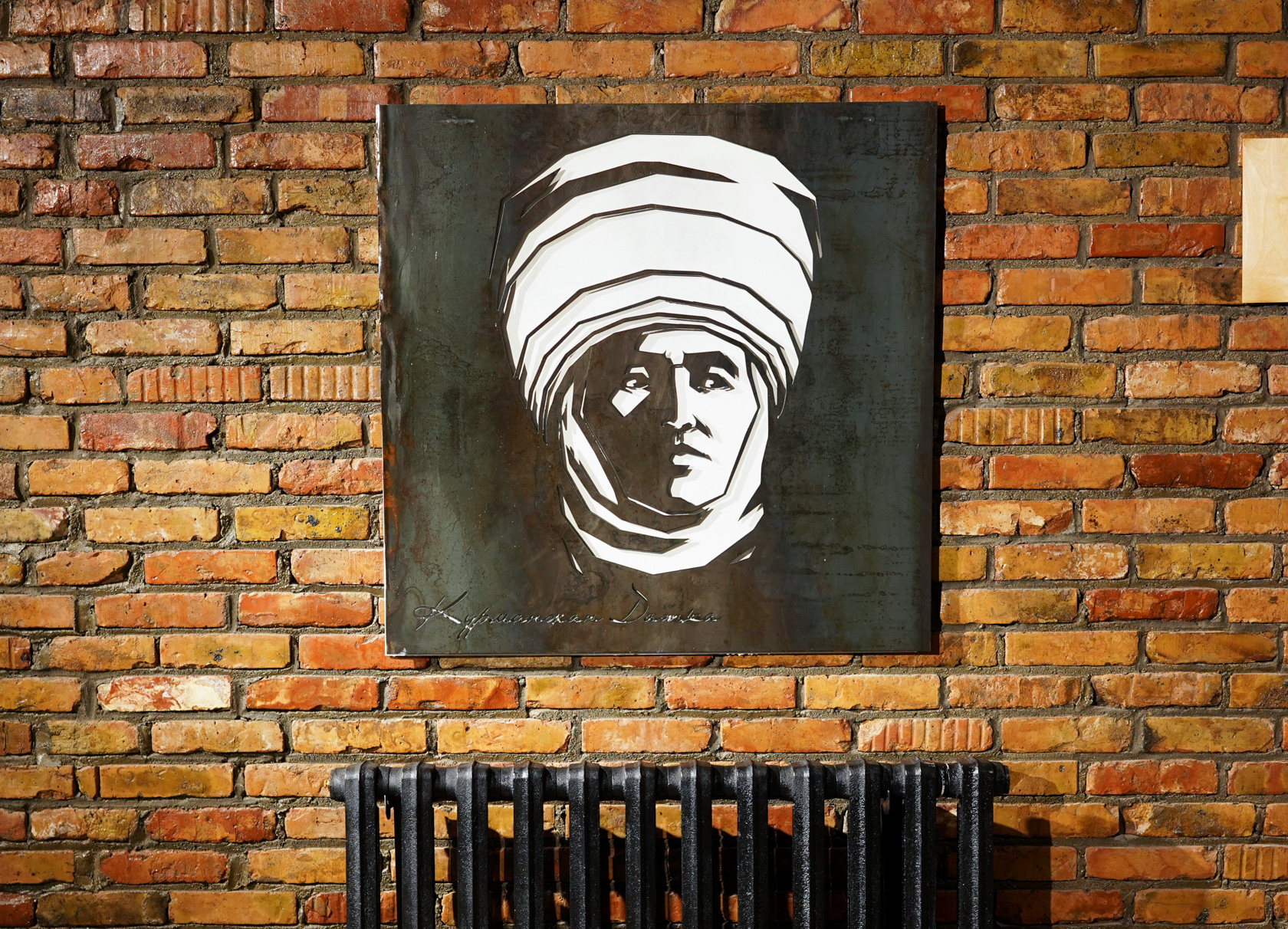
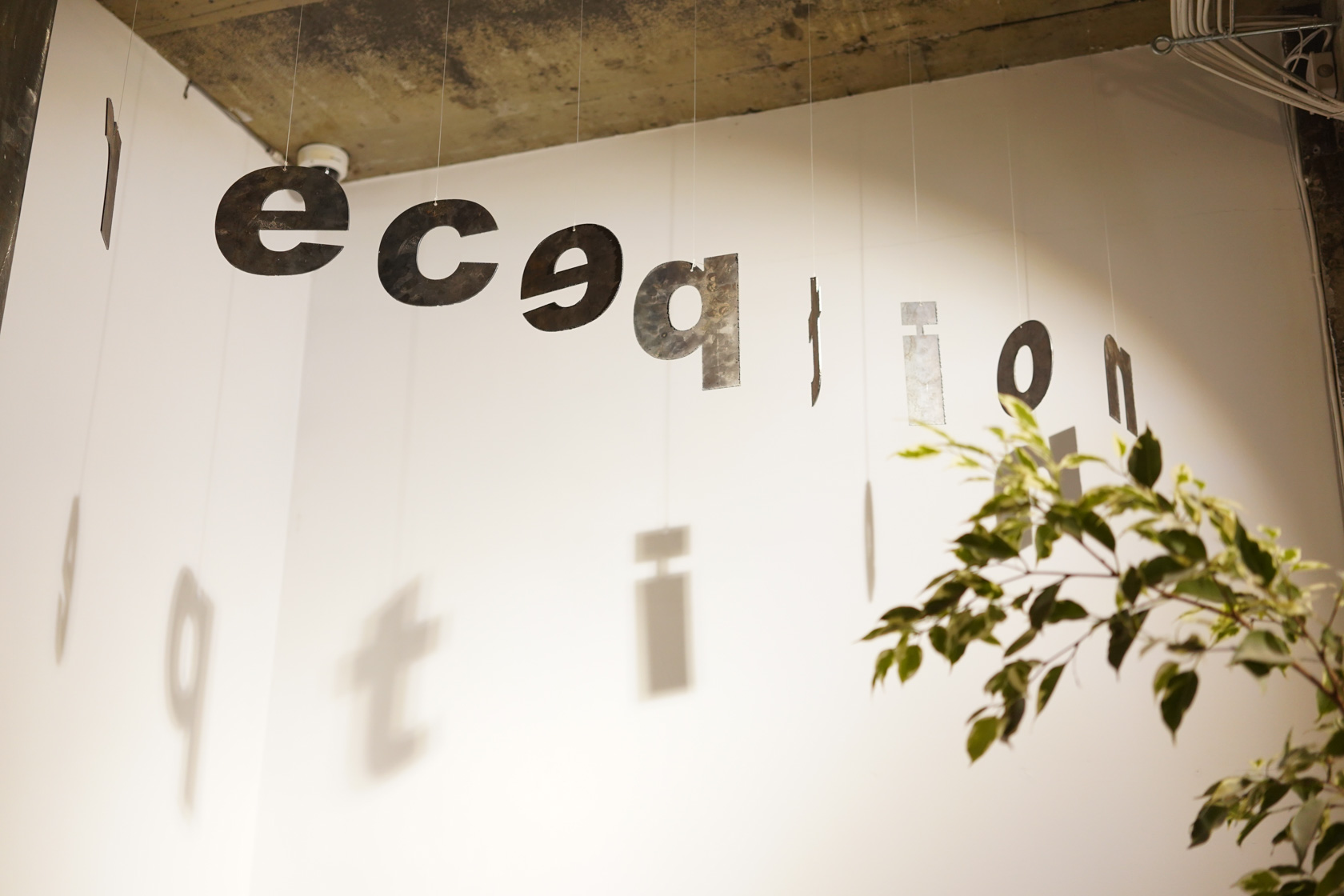
Just last October, we opened our largest space in the southern districts of Bishkek. It takes up two floors, covers 1,400 square meters, and boasts a full food court, restaurant, and co-gardening. It is currently our best coworking space in terms of our work on its space and design. Again, compliments to Atai. We think that only he could actualize something as daring as this. And here, we unveiled our second art studio. We are so happy that after branching out into so many other projects, we were able to open another art studio, thereby returning to the origins of our company.
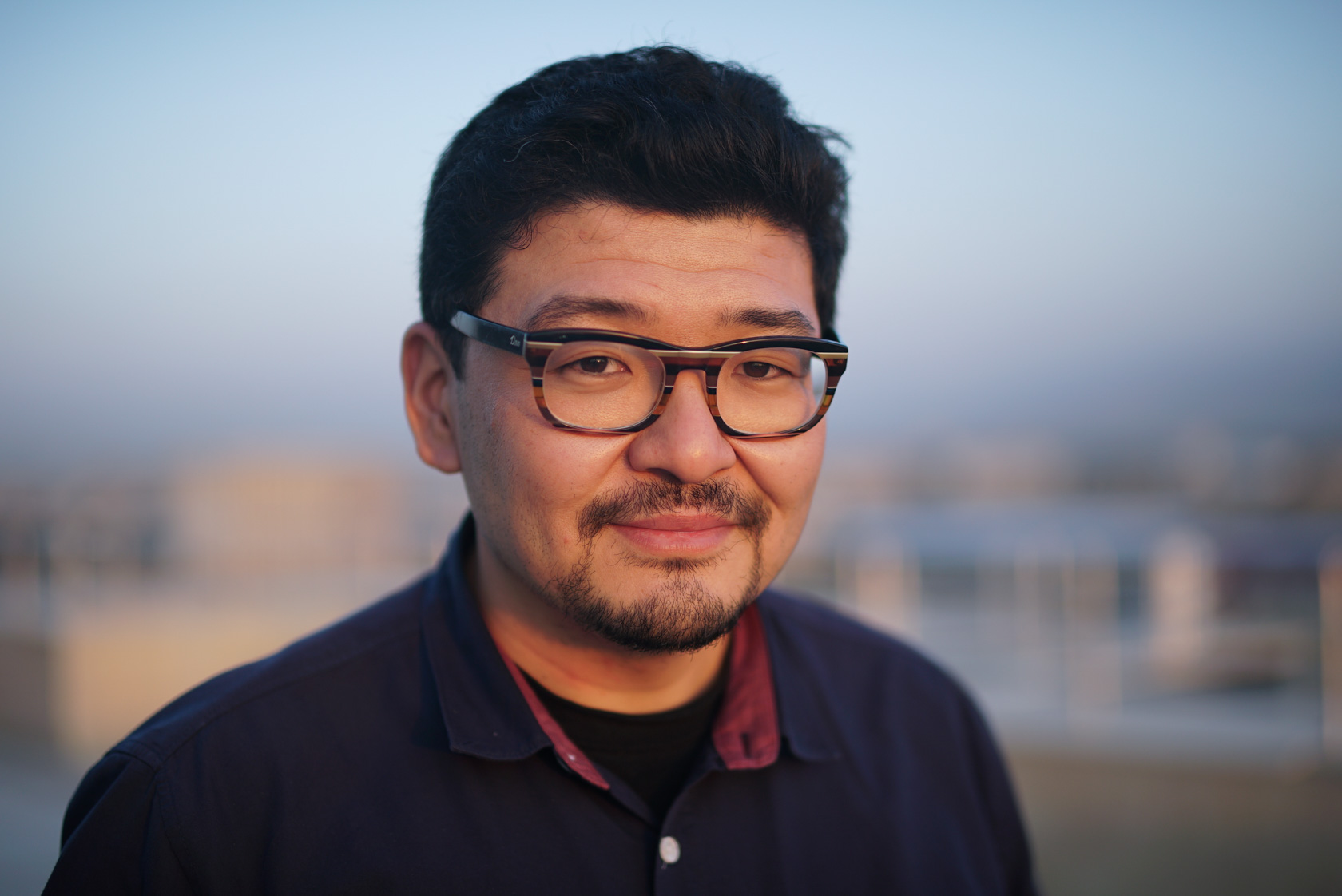
Atai:
“Our coworking spaces are utilized by very different types of people. We have programmers, architects, designers, urbanists. There are startups that provide cleaning services and programming courses. Everyone is united in the fact that they make money and build their businesses with their mind and creativity.”

Daniyar:
“For us it is important that people who utilize our spaces don’t do things traditionally. We want them to create something innovative, something that in the future can become an exportable product. Suppose, for example, that a traditional real estate agency comes into our space, and there’s nothing interesting or innovative in their approach. We would deny them a space in our facility. Sometimes this approach spoils relationships with some people and can even cost us money, but we want our community to consist of businesses that are constantly surprising and impressing each other.
Our most important product is community
When problems arose in our first coworking space, we were afraid that our tenants would be disappointed and would not want to work with us anymore. We were very moved by their support and willingness to follow us to a new location.
There’s no doubt that this incident cut us deeply: we worked for six months to turn an abandoned daycare into a fairy tale, and suddenly we had to abandon it all. Going through this experience made us realize that we are not offering square meters or jobs. Our most important product is community.”
Opposing boring corporate approaches in every way, the founders of ololo decided not to use usual terms to denote their positions. So, Daniyar Amanaliev is ololo’s Artistic Director of Business, Ainura Amanalieva is the Getting Things Done Genius, and Atai Sadybakasov is Atai.
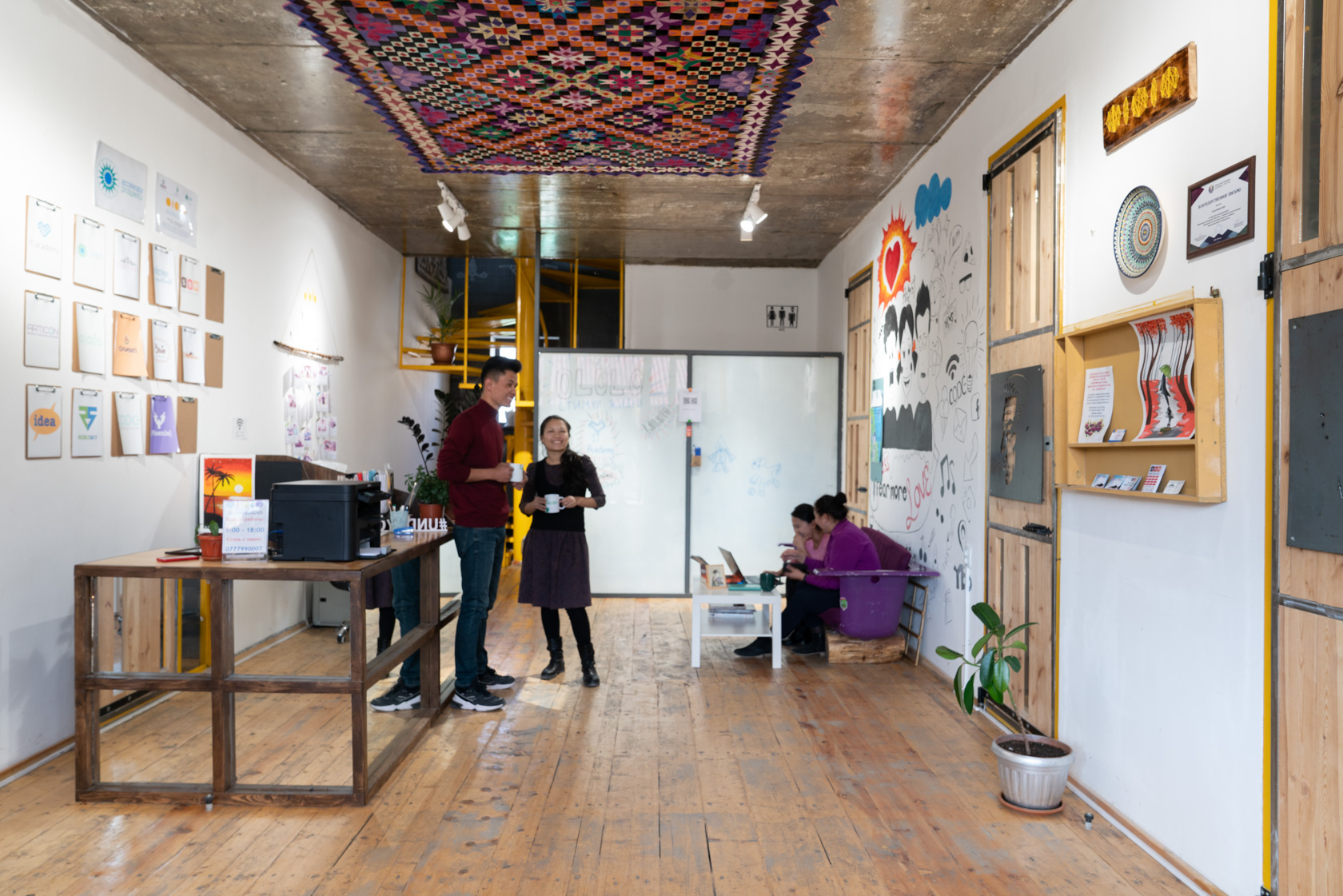
MUSICAL ERKINDIK
Ainura:
“Once, some fellow musicians and I decided to place a bet: who would make more money in an hour by playing on the street, a guitarist, komuz player or drummer?
Askat played on the komuz. He’s a very cool, professional musician. But he collected about 200 som, because the sound of the komuz dissolved in the open outdoor space and as a result was almost inaudible. Nikita, the guitarist, came more prepared. He used an amplifier, took an assistant with him, and pretended to be a foreigner. He collected 900 som. The drums were the most amusing of all: the group Tendo had barely finished setting up their instruments, and they had not yet played a single note before people began to throw money to them. It created a whole show, and as a result, the drums won, collecting 2000 som. With the money we raised, we helped transport a piano for a girl who had always wanted to play.
We had such an amazing response that we thought, why not try to make Bishkek a city of street musicians? That’s when we thought of flash mobs: a person walks down Erkindik Boulevard and hears a wide variety of music everywhere. Therefore, the project was named “Musical Erkindik”. And the second meaning of the name is that Erkindik means ‘freedom’ in Kyrgyz.
One young woman once wrote us on Facebook about a conversation with her two-year-old daughter:
—’Rakhmat’ means ‘thank you’ in Kyrgyz.
—Mama, and ‘Erkindik’ in Kyrgyz means ‘music’.
Isn't that cool?”
Daniyar:
“At present, the flash mob takes place on the last Saturday of each month. We’ve already held 25 events. Each time, we simply publish an announcement on Facebook. Musicians sign up, we plan out the locations and place them along the street depending on their instrument and equipment so that they do not interfere with each other. Then we collect volunteers, and they help us with logistics. Usually, 15-20 musicians participate, stretching across five blocks from the railway station to Oak Park.
From the very beginning, the goal was to establish a flash mob without using any resources. All advertising is solely through Facebook posts; we do not pay for any promotion. It’s also important to us that the flash mob does not rely on us. Each time, we appoint a new organizer, so that if tomorrow we are all gone, or we all decide not to organize these flash mobs anymore, there will be people who can organize Musical Erkindik on their own.
Our ultimate dream is for Bishkek itself to become a city of street musicians. Then Musical Erkindik will cease to rely on community organizers to initiate it.”
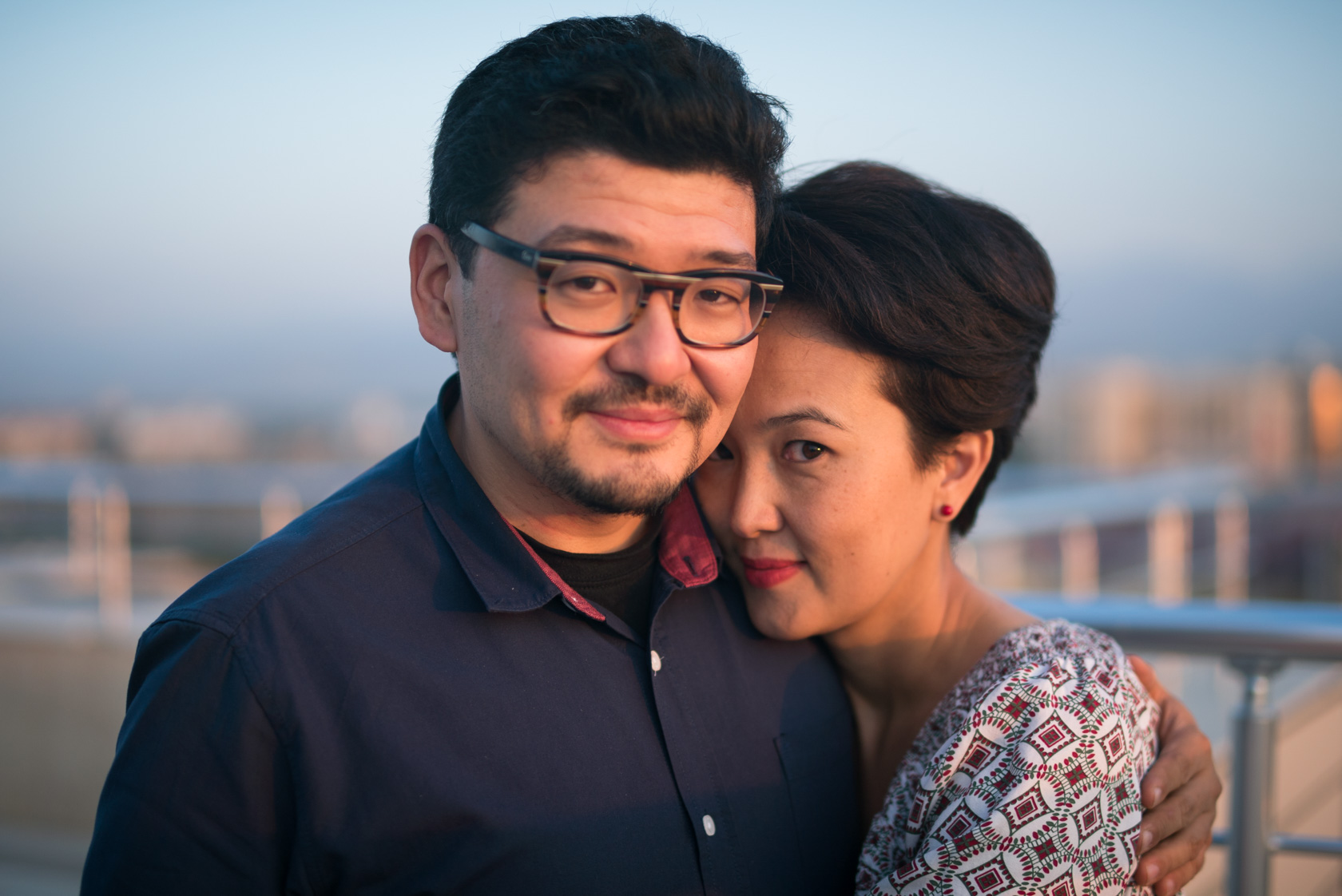
FREEDOM
Daniyar:
“Once, the deputy chief of the district administration called us, very aggressively claiming that we needed to get permission to hold a festival, otherwise it wouldn’t be allowed to happen. It was a petty official who just wanted to demonstrate his unlimited power.
We are well aware that in Kyrgyzstan, according to the law on peaceful assemblies, no permits at all are required. This is a non-profit non-political event: citizens simply play music for others. I told him that we will not seek any permission, this is our city, we have the right to play and listen to music, and if he wants to say that it is forbidden, he must refer us to the corresponding law. Of course, he did not refer us to anything.
It's great that we have a strong civil society. We wrote a post about this interaction on Facebook, and the media began to bombard this official. He quickly backtracked and began to say that nothing would happen to us, it would have just been nice if we had notified him. The public outcry to this coverage resulted in the coolest and most well-attended “Musical Erkindik” in the history of the flash mob. Musicians considered it their duty to go out and play on that day. Many citizens came just on principle and expressed words of support to the musicians. Sometimes, in order for people to truly appreciate their freedoms, they need to be reminded that they can be taken away.
It's time to convert freedom into an economic asset
What we are doing now is very long-term. Our services for the creative class are for people who earn their livings with their brains, who value their internal energy. And right now, there aren’t many people like this. But we anticipate that their number will grow very quickly. We are not the only ones in this business, and we do not have the goal of being the only ones. We want to act as a catalyst, a stimulant. For some, we might be a light. For others, an example. For still others, a deeply hated object that they hope to wipe from the face of the earth in order to create something better in its place. And that is wonderful. We need to see the emergence of lots of private, free, and independent institutions. Kyrgyzstan is the freest country in Central Asia, and it is time for us to convert this freedom into an economic asset. The best way to do this is through a creative economy. We have always been able to create something big out of nothing.”
Ainura:
“It seems to me that due to the fact that Bishkek is so small compared to other world capitals, it is very flexible and responds quickly to certain things. We are active. I love it. This is the value that distinguishes our city.”
